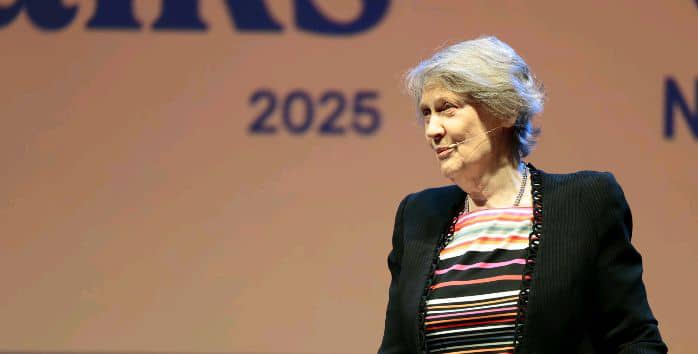Transparency and good governance: Essential pillars for financing development

The Addis Ababa Action Agenda of 2015 called for mobilizing all possible sources of finance – domestic and international, public and private. As UN Member States work to update the Addis agenda, new challenges have emerged: fiscal strain from the COVID-19 pandemic, rising debt in low and middle-income countries, and the increasingly urgent need to finance climate change adaptation and mitigation.
Natural resource wealth and domestic resource mobilisation have a crucial role to play in fostering sustainable economic growth and resilience
In this context, natural resource wealth and domestic resource mobilization have a crucial role to play in fostering sustainable economic growth and resilience.
Strengthening domestic resource mobilization through good governance
Fifty-five countries implement the EITI Standard, half of them in Africa. In doing so, they commit to ensuring that natural resource revenues benefit their citizens and contribute to sustainable development. Good governance in the extractive sector can generate jobs, drive sustainable growth, and attract investment. However, this does not happen automatically – it requires strategic investment in institutions, laws, policies, and practices which will enable domestic resource mobilisation to reach its full potential.
Over the past seven years, the extractive sector has accounted for 20 to 95 percent of government revenues in 34 EITI implementing countries
The potential for such mobilisation is significant. EITI member countries collectively report revenues of between USD 130 billion and 350 billion, often representing a substantial share of GDP, government revenue, and exports. Over the past seven years, the extractive sector has accounted for 20 to 95 percent of government revenues in 34 EITI implementing countries, 14 of which are listed by the UN as Least Developed Countries (LDCs).
When the EITI was launched over two decades ago, it was apparent that natural resource extraction was all too often a driver of corruption and illicit financial flows, rather than of inclusive development and domestic resource mobilization.
Since then, the EITI has helped drive key reforms that have spillover effects beyond the extractive sector. These include:
- Making transparency across the resource value chain the norm. Transparency should not be the exception – it should be standard practice. The EITI requires full disclosure of extractive contracts, licensing, beneficial ownership, and payments – all essential in the fight against corruption. Achieving this requires legislative and policy reform, backed by implementation capacity. State-owned enterprises, in particular, must be held to high standards of transparency and accountability.
- Optimizing domestic resource mobilization through stronger tax policies. Illicit financial flows, base erosion, and profit shifting undermine taxation and must be identified and addressed. The UNDP-OECD initiative, Tax Inspectors Without Borders, was a valuable initiative, mobilizing tax experts from countries in the north and south to strengthen tax collection capacities in resource-rich countries.
- Promoting transparent budgeting and revenue allocation. Public revenue collection and spending can be opaque and inefficient. Citizens are entitled to know where the money comes from and how it is spent. Transparency at the subnational level is equally crucial to ensure extractive revenues are aligned with local development needs.
- Strengthening multi-stakeholder accountability mechanisms. The EITI operates through multi-stakeholder platforms at both the global and national levels. These platforms — comprising government, industry, and civil society — help identify and counter governance challenges that undermine domestic revenue mobilization. They also play a critical role in expanding public debate on extractive sector revenues.
Governance in the era of energy transition
Countries rich in critical minerals have a unique opportunity to leverage their resource wealth, but they also face significant risks. A surge in exploration and extraction can lead to poor governance, back-handers, unfavourable contracts for countries and communities, and lax environmental and social standards. Strong governance is vital to mitigate these risks and ensure resource mobilisation supports sustainable development.
Countries rich in critical minerals have a unique opportunity to leverage their resource wealth, but they also face significant risks.
The recent report of the UN Secretary-General’s Panel on Critical Energy Transition Minerals underscores that resource-rich countries must adopt deliberate, sustained policies to promote value addition and build domestic industries. Without this, many countries risk remaining trapped in a cycle of low-value resource extraction, price volatility, and low revenue returns.
The imperative for action
As we approach the Fourth International Conference on Financing for Development in June, we have an opportunity to build a new financing framework that addresses today’s challenges. Effective domestic resource mobilization is central to this effort. For resource-rich countries, particularly those with critical minerals, this is an opportunity not to be missed. But success requires strong institutions, sound policies, and robust implementation mechanisms to turn potential into prosperity.
